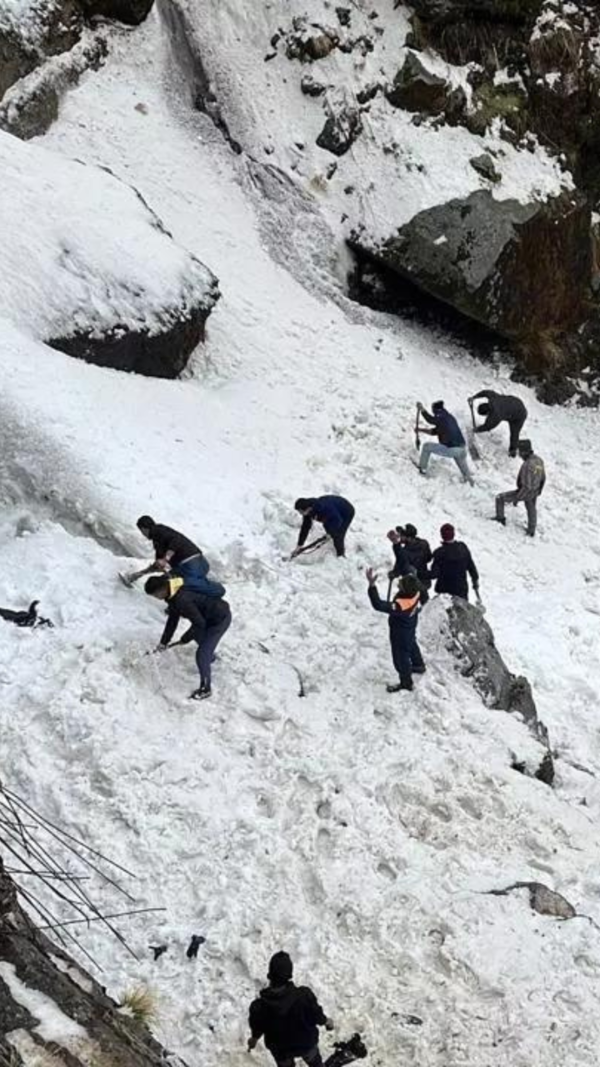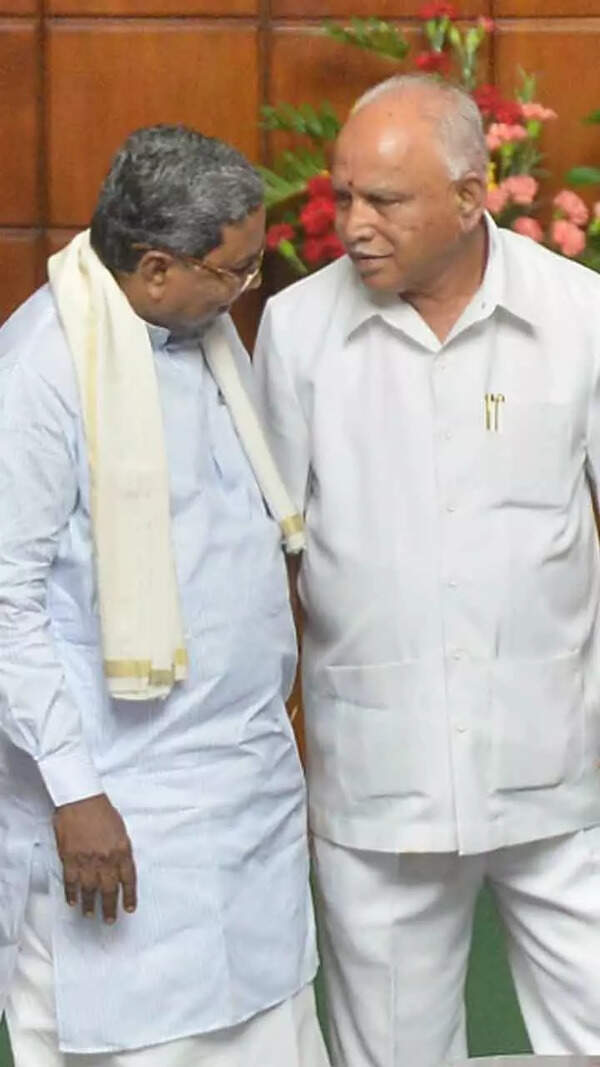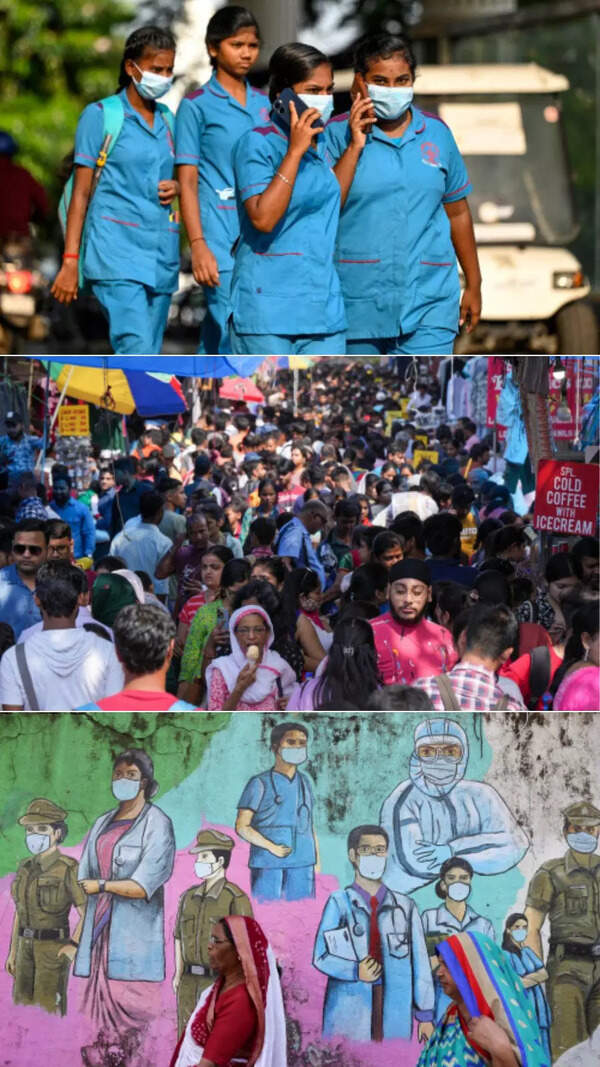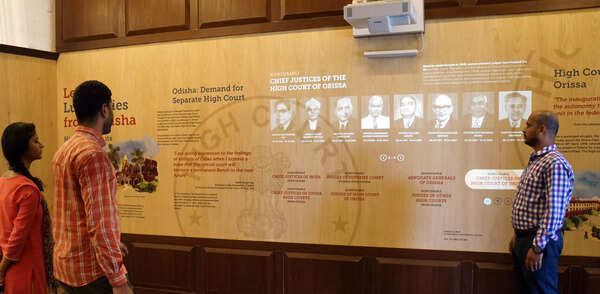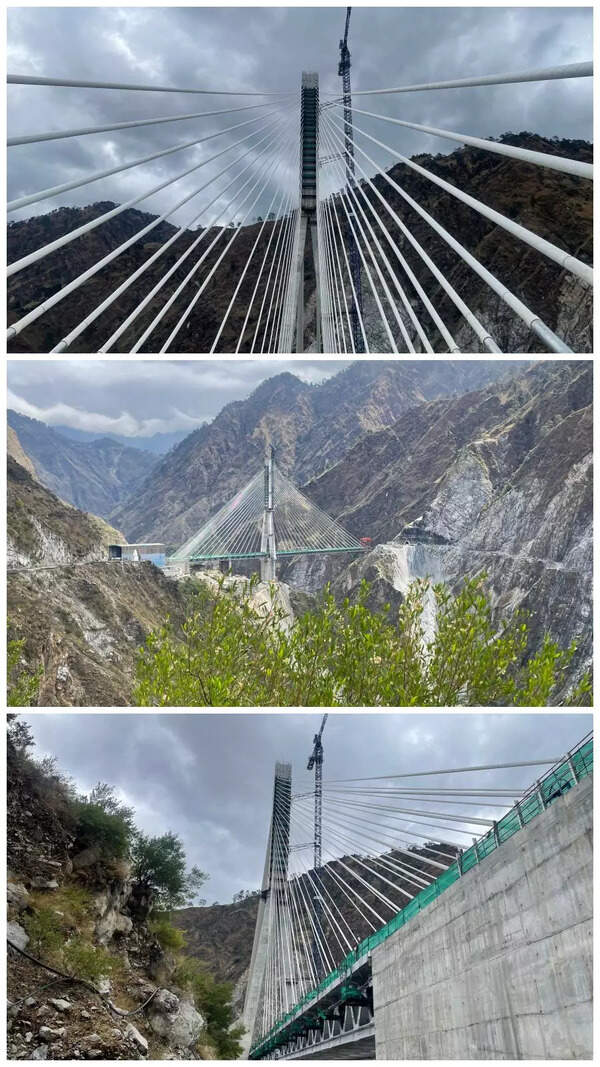- News
- City News
- ranchi News
- At 88%, Jharkhand pollution board has highest no. of vacancies in country
Trending Topics
At 88%, Jharkhand pollution board has highest no. of vacancies in country
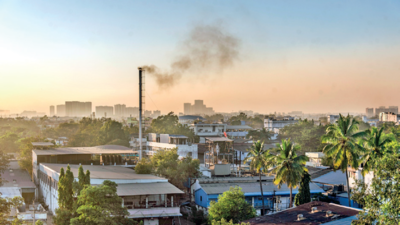
Image used for representational purpose only
RANCHI: The Jharkhand State Pollution Control Board (JSPCB) which has the mandate to ensure clean air, water and overall ecology is virtually rendered toothless owing to manpower crunch.
Of 271 sanctioned posts in JSPCB, 237 are vacant, which is close to 88%, the highest among all the pollution boards in the country with unfilled positions.
This has come to fore in a recent reply by the ministry of environment, forest and climate change in Lok Sabha to a question on vacant positions in pollution control boards in the country.
Of the sanctioned strength of 11,103 across all state pollution control boards, 5,454 are vacant with Jharkhand being the worst-hit nationally.
The state pollution control boards have an important role in enforcement of provisions of Water (Prevention and Control of Pollution) Act, 1974, Air (Prevention and Control of Pollution) Act, 1981 and the Environment (Protection) Act, 1986. The responsibility to fill up vacancies lies with the respective state governments and UT administrations, the MOEF stated in its statement.
Environmentalists have slammed state government’s inaction in filling up the vacancies. They are also concerned as this mineral rich state has pollution challenges at many front be it in mining, industries or shoddy transport system.
Talking to TOI, Jamshedpur (east) MLA Saryu Rai said the state pollution control board here is virtually toothless.
“The JSPCB is a regulatory body to control pollution and address other environment issues. But it has neither manpower for field visits and inspection, nor labs to conduct tests, or equipment. It has restricted itself only to provide consent to operate (CTO) and consent to establish (CTE) permissions,” he said.
Rai had in the past filed a suit in the high court against the state government and the board for alleged discrepancies in appointments to key posts.
“I believe the chairman and the member secretary of the board shouldn’t be someone from the forest service because there are possibility of clash of interest. These posts should be filled up with a domain knowledge expert. Currently, IFS are in these positions,” he said.
“Recently, in response to my question in assembly, the board claimed that they had installed devices to measure air pollution at 175 locations in the state. When I did a reality check, half of them were found non-functional. Technically, the board doesn’t have mechanism at any level to effectively test air, water, and other forms of pollution across the state round the clock. This is lethal,” he said.
Ranchi-based geologist Nitish Priyadarshi pointed out how the board doesn’t have proper data. “Twenty years ago, when we were researching on water quality in the state, the board couldn’t provide any valid data to us. Since then, the situation has only become worse. In nutshell, board’s concern for environment is often restricted to conducting workshops,” he said.
An air pollution expert who until recently collaborated with the board to work on the subject, said on condition of anonymity that in his two-year stint in the state, the biggest hindrance in doing effective work was lack of manpower in JSPCB and leadership.
“I think the board currently has only two scientists but when we were working on air pollution mitigation plan as part of the National Clean Air Programme (NACP), none of them could understand the nuances of air pollution. That sums up the kind of manpower that exists in the board,” he said, adding under the NACP programme, the Centre has selected Ranchi, Jamshedpur and Dhanbad for air pollution mitigation programmes but on the ground nothing concrete has been done since two years.
“The state couldn’t even set up regular air quality monitors from central funds here. Even if some monitors come up, quality of data is always a challenge. The MOEF says all boards must regularly furnish pollution data but in Jharkhand, nothing of that sort is often done for public consumption,” he said.
Giving an indication of air pollution challenge in Ranchi alone, he said, “In 2018-19, Albert Ekka Chowk’s annual average PM10 count was between 200 and 250 microgram/cubic meter, much higher than the standard 60mg/cubic meter. Today, the situation may have turned worse.”
JSPCB chairman Sashikar Samanta and member secretary Y K Das remained unavailable for comments.
Joint secretary of the state forest and environment department Rajiv Ranjan Rai said, “Filling vacant posts is the mandate of the JSPCB as it is an autonomous body.”
Of 271 sanctioned posts in JSPCB, 237 are vacant, which is close to 88%, the highest among all the pollution boards in the country with unfilled positions.
This has come to fore in a recent reply by the ministry of environment, forest and climate change in Lok Sabha to a question on vacant positions in pollution control boards in the country.
Of the sanctioned strength of 11,103 across all state pollution control boards, 5,454 are vacant with Jharkhand being the worst-hit nationally.
The state pollution control boards have an important role in enforcement of provisions of Water (Prevention and Control of Pollution) Act, 1974, Air (Prevention and Control of Pollution) Act, 1981 and the Environment (Protection) Act, 1986. The responsibility to fill up vacancies lies with the respective state governments and UT administrations, the MOEF stated in its statement.
Environmentalists have slammed state government’s inaction in filling up the vacancies. They are also concerned as this mineral rich state has pollution challenges at many front be it in mining, industries or shoddy transport system.
Talking to TOI, Jamshedpur (east) MLA Saryu Rai said the state pollution control board here is virtually toothless.
“The JSPCB is a regulatory body to control pollution and address other environment issues. But it has neither manpower for field visits and inspection, nor labs to conduct tests, or equipment. It has restricted itself only to provide consent to operate (CTO) and consent to establish (CTE) permissions,” he said.
Rai had in the past filed a suit in the high court against the state government and the board for alleged discrepancies in appointments to key posts.
“I believe the chairman and the member secretary of the board shouldn’t be someone from the forest service because there are possibility of clash of interest. These posts should be filled up with a domain knowledge expert. Currently, IFS are in these positions,” he said.
“Recently, in response to my question in assembly, the board claimed that they had installed devices to measure air pollution at 175 locations in the state. When I did a reality check, half of them were found non-functional. Technically, the board doesn’t have mechanism at any level to effectively test air, water, and other forms of pollution across the state round the clock. This is lethal,” he said.
Ranchi-based geologist Nitish Priyadarshi pointed out how the board doesn’t have proper data. “Twenty years ago, when we were researching on water quality in the state, the board couldn’t provide any valid data to us. Since then, the situation has only become worse. In nutshell, board’s concern for environment is often restricted to conducting workshops,” he said.
An air pollution expert who until recently collaborated with the board to work on the subject, said on condition of anonymity that in his two-year stint in the state, the biggest hindrance in doing effective work was lack of manpower in JSPCB and leadership.
“I think the board currently has only two scientists but when we were working on air pollution mitigation plan as part of the National Clean Air Programme (NACP), none of them could understand the nuances of air pollution. That sums up the kind of manpower that exists in the board,” he said, adding under the NACP programme, the Centre has selected Ranchi, Jamshedpur and Dhanbad for air pollution mitigation programmes but on the ground nothing concrete has been done since two years.
“The state couldn’t even set up regular air quality monitors from central funds here. Even if some monitors come up, quality of data is always a challenge. The MOEF says all boards must regularly furnish pollution data but in Jharkhand, nothing of that sort is often done for public consumption,” he said.
Giving an indication of air pollution challenge in Ranchi alone, he said, “In 2018-19, Albert Ekka Chowk’s annual average PM10 count was between 200 and 250 microgram/cubic meter, much higher than the standard 60mg/cubic meter. Today, the situation may have turned worse.”
JSPCB chairman Sashikar Samanta and member secretary Y K Das remained unavailable for comments.
Joint secretary of the state forest and environment department Rajiv Ranjan Rai said, “Filling vacant posts is the mandate of the JSPCB as it is an autonomous body.”

About the Author
ASRP MukeshASRP Mukesh holds over 15 years of journalistic experience. He covers government, politics, human interest stories from Jharkhand.
Start a Conversation
FOLLOW US ON SOCIAL MEDIA
FacebookTwitterInstagramKOO APPYOUTUBE


